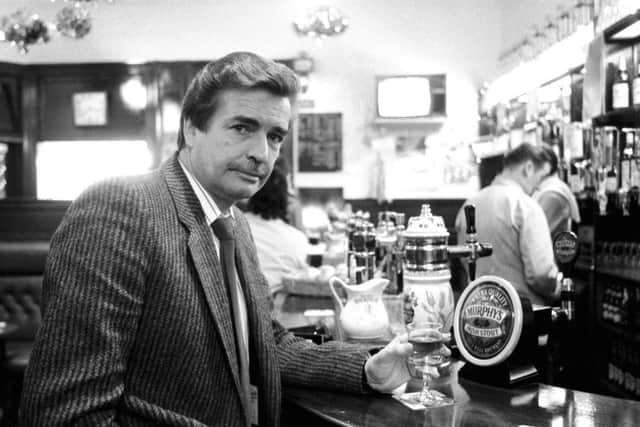Five of the best William McIlvanney novels


The novels of William McIlvanney, who has died aged 79, may be principally set in the west of Scotland but they are enjoyed by people the world over.
Born in Kilmarnock, the novelist spent many years working as an English teacher in his home county of Ayrshire before focusing his attentions on writing.
Advertisement
Hide Ad“He wrote of a society he knew and had grown up in: his voice was that of ordinary folk and of the authentic man in smoke filled pubs,” The Scotsman’s obituary of McIlvanney noted.


“McIlvanney’s desire to capture his working-class heritage remained a theme throughout his books. Even at university he was irritated that none of the literature he studied reflected the rich and colourful working-class life of his youth.”
His work enjoyed a critical and popular reappraisal in 2013 when Canongate began to republish his back catalogue.
Scotsman journalist Martyn McLaughlin wrote in 2013: “Laidlaw’s enduring gift is the legitimacy it gave to a new generation of writers. It may seem unconscionable in today’s thriving age of Scottish cultural expression, but McIlvanney swept away old stigmas and showed it was possible to imbue popular fiction with the sandblasted language of the everyday and literary ambition.”
While Laidlaw, the seminal 1977 story of a Glaswegian detective chasing a young killer, remains his best-known work, McIlvanney was no mere crime writer in thrall to Raymond Chandler. Here, we present a sample of McIlvanney’s panoramic literary talent.
DOCHERTY (1975)
McIlvanney’s breakthrough work tells the story of Tam Docherty, a miner in the fictional Ayrshire town of Graithnock, as he struggles to raise a family in trying circumstances in early 20th century Scotland. The strong humanitarian streak displayed by the book’s protagonist, and his stubborn refusal to accept second best for those closest to him, make him a hero among his community. On his last day in teaching, McIlvanney learnt that Docherty had won the prestigious Whitbread Prize for Literature.
LAIDLAW (1977)
Advertisement
Hide AdTartan Noir is today recognised as a popular literary genre around the world. But when Laidlaw was first published, detective novels set in Scotland were thin on the ground. McIlvanney elevates himself above the standard generic crime thrillers by creating a fascinating central character in Jack Laidlaw - a copper who reads Camus and refuses to let sleeping dogs lie.
THE PAPERS OF TONY VEITCH (1983)
Following the success of Laidlaw, McIlvanney was told by his publisher that he would become a millionaire if he could produce a similar book once a year. In reality, the follow-up took six before it hit the shelves. The second installment in the Laidlaw trilogy finds our hero on the hunt for an enigmatic student drop-out who is suspected of having killed both an alcoholic vagrant and a gangland thug. While others are certain of who is to blame, Laidlaw believes the truth may be more complex.
THE BIG MAN (1985)
Advertisement
Hide AdMcIlvanney returned to Ayrshire for the setting of his next novel. There are echoes of Docherty as we meet another father with high principles struggling to make ends meet, this time in the economically depressed early 1980s. We follow Dan Scoular as he is given the chance to earn some much-needed cash by taking part in a bare-knuckle boxing match organised by a Glasgow crook. The novel was adapted into a 1990 film of the same name, starring Liam Neeson.
THE KILN (1996)
Tom Docherty, the grandson of Tam, looks back at his intellectual and sexual awakening in the mid-1950s when he worked at a brickmaker’s kiln in Ayrshire. We meet this generation of Docherty as he lives in Edinburgh, alone with his memories, contemplating his life’s path. An ambitious and frequently humorous novel, The Kiln won Saltire Society Scottish Book of the Year Award.